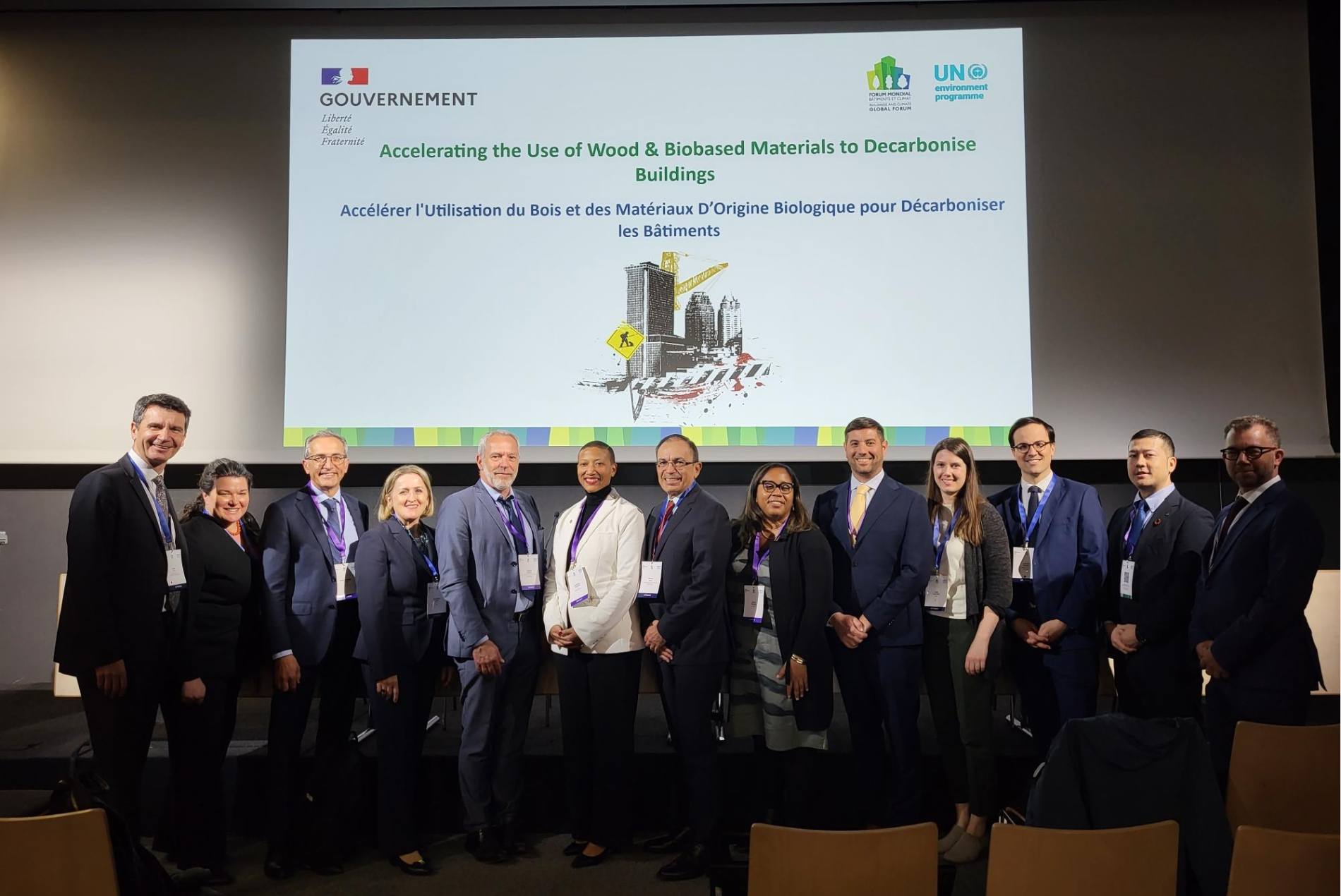Anica Landreneau, HOK’s director of sustainable design, joined Kimberly Dowdell, HOK’s director of strategic partnerships and the 2024 president of the American Institute of Architects, in Paris at the UN Buildings and Climate Global Forum.
In March 2024, the United Nations held the inaugural Buildings and Climate Global Forum (BCGF) in Paris, convening international stakeholders from both government and the private sector to strategize on mitigating the environmental impact of the architecture, engineering and construction (AEC) industry. The forum, following closely after the COP28 Buildings Breakthrough, spotlighted the significant role of the building sector in global climate agreements.
Central to the BCGF discussions was the Declaration of Chaillot, which outlined specific criteria that must be integrated into international agreements and Nationally Determined Contributions (NDCs) to effectively address climate change within the building sector.

2024 BCGF Panelists Photo, Paris
According to Landreneau, the BCGF event and the Declaration of Chaillot reaffirmed HOK’s emphasis on building renovations, electrification and zero-emissions buildings, embodied carbon, low carbon and bio-based construction materials, and equitable climate policies for the building sector. There was a strong focus on Whole Life Carbon assessments, including emissions from material extraction and manufacturing, construction activity, building operations and eventual decommissioning.
“A key takeaway is our need to approach carbon impacts from a ‘whole life’ perspective, in which we can zoom in to focus on specific areas of carbon impact,” said Landreneau. “But at the end of the day, we need to roll everything up into a comprehensive carbon accounting for all our projects. This approach heavily favors renovations, bio-based materials such as timber, and designing for circularity, with adaptation and reuse in mind.”
The BCGF also emphasized ‘sufficiency’ and scaling up renovation activity for established economies with well-developed building stock, while focusing on zero-emission construction and energy grids for regions that are rapidly growing or urbanizing and lack adequate housing infrastructure.
HOK is recognized as a leader in climate action among design firms, contributing to policy development, implementation and market-transforming design around the world. Landreneau and Dowdell participated in multiple panels, workshops, a CEO roundtable and high-level government engagement events, sharing their technical expertise and global perspective, representing both the design and private sector building industries.
“Buildings are responsible for over 34% of global energy demand and approximately 37% of energy-related CO2 emissions,” said Landreneau. “Focusing on carbon impact through a ‘whole life’ lifecycle perspective and designing for circularity, reuse and resilience is key to change.”
Dowdell stressed the significance of the BCGF for the AEC industry, stating, “It’s invaluable for government leaders to call upon architects to help lead the way in global climate action in the built environment. A diversity of representation among stakeholders is essential for reinforcing international collaboration and multi-sector commitments.”
Related: Anica Landreneau chats with Architecture Today about the Buildings and Climate Global Forum.
